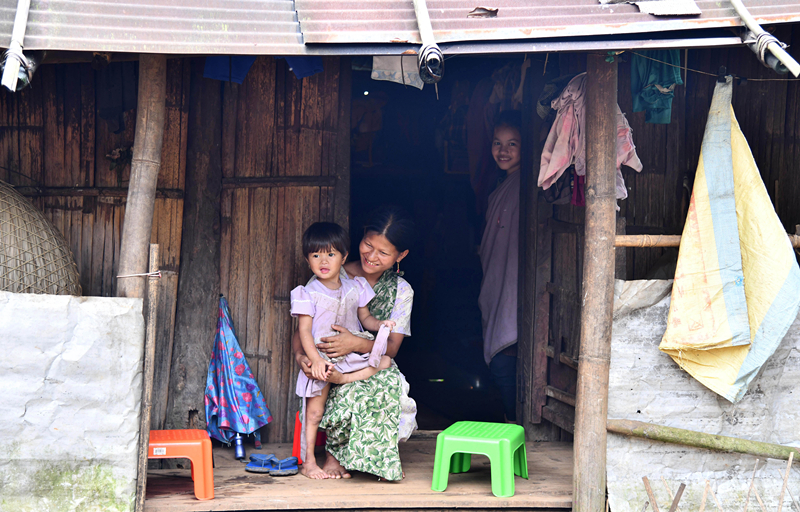Everyone has their melody in village


Modern world puts tradition in danger with televisions and mobile phones
KONGTHONG, India - Curious whistles and chirrups echo through the jungle around Kongthong, a remote Indian village, but this is no birdsong. It's people calling out to each other in music - an extraordinary tradition that may even be unique.
Here in the lush, rolling hills of the northeastern state of Meghalaya, mothers from Kongthong and a few other local villages compose a special melody for each child.
Everyone in the village, inhabited by the Khasi people, will then address the person with this individual little tune - and for a lifetime. They have conventional "real" names too, but they are rarely used.
To walk along the main road in this village of wooden huts with corrugated tin roofs, perched on a ridge miles from anywhere, is to walk through a symphony of hoots and toots.
On one side a mother calls out to her son to come home for supper, elsewhere children play and at the other end friends mess about - all in an unusual, musical language of their own.
"The composition of the melody comes from the bottom of my heart," mother-of-three Pyndaplin Shabong said, with her youngest daughter, two and a half years old, on her knee.
"It expresses my joy and love for my baby."
"But if my son has done something wrong, if I'm angry with him, he broke my heart, at that moment I will call him by his actual name," rather than singing lovingly, added Rothell Khongsit, a community leader.
Harmony with nature
Kongthong has long been cut off from the rest of the world, several hours of tough trek from the nearest town. Electricity arrived only in 2000, and the dirt road in 2013.
Days are spent foraging in the jungle for broom grass - the main source of revenue - leaving the village all but deserted, except for a few kids.
To call out to each other while in the forest, the villagers would use a long version lasting around 30 seconds of each other's musical "name", inspired by the sounds of nature all around.
"We are living in far-flung villages, we are surrounded by the dense forest, by the hills. So we are in touch with nature, we are in touch with all the gracious living things that God has created," said Khongsit.
The custom is known as "jingrwai lawbei", meaning "song of the clan's first woman", a reference to the Khasi people's mythical original mother.
And for India, this is a matrilineal society. Property and land are passed down from mother to daughter, while a husband moves in with his wife and takes her name.
But according to anthropologist Tiplut Nongbri, a professor at Jamia Millia Islamia university in Delhi, it is something of a "disguised patriarchy".
"Taking care of the children, that's the women's responsibility. Statecraft and all that is (a) male function."
The days of "jingrwai lawbei" may be numbered, though, as the modern world creeps into Kongthong in the shape of televisions and mobile phones.
Some of the newer melodic names are inspired by Bollywood songs.
And youngsters are increasingly going off singing out their friends' melodic names, preferring instead to phone them.
Agence France-presse



































